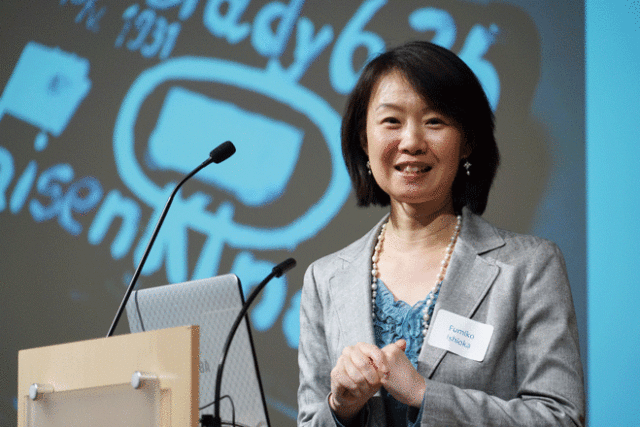
By Fumika Iwasaki The North American Post
“Hana’s suitcase” opened at Seattle Children’s Theater on Jan. 21. The play is set during the holocaust, focusing on a little girl, Hana, and her luggage.
Fumiko Ishioka, Executive Director of the Tokyo Holocaust Education Resource Center, thought the holocaust could become a starting place for children to think about discrimination and prejudice in their lives.
“It might be a different situation from the United States or Canada, but in Japanese society, there is discrimination and prejudice,” she said. “I would like children to be conscious of discrimination in society and work to create an unprejudiced society.”
Hana’s suitcase was first brought to the Tokyo Holocaust Education Resource Center as an exhibit. Ishioka had the idea that it could be used as the focal point of a real life story through which to ask what kind of dreams the 13 year old owner had, how many family members there were or where she was sent with the suitcase.”
Including Germany, European countries have worked hard to preserve
resources about the holocaust and learn from then. With research, Ishioka found and met George Bredy, Hana’s brother.
“Hana’s suitcase,” including Hana’s stories and Ishioka’s activities, was published and then a documentary and a movie were made. Additionally, stage plays were held in Japan, Canada and the United States. Because Sheri Biller, from the Sheri and Les Biller Family Foundation, and Friends of Hana’s Suitcase have made every effort to hold the play for about 10 years, Seattle became the first city to host the play on the west coast.
In addition, because of Biller’s recommendation, Ishioka received a Distinguished Service Award from the University of Washington Alumni Association. As in Japan, Ishioka visited schools and spoke about Hana’s stories.
“If people can appreciate their family or siblings after seeing the play, I’m so happy,” said Bredy who also joined the Seattle visit last week.
Emil Sher, playwright, said, “The play shows not only how the holocaust was sad but also people’s hope. Discrimination and violence like the holocaust do not just belong to history, they still continue around the world. I hope the play will become an opportunity examine our daily lives.”
The show will be run until Feb. 7.
“Not only in the holocaust, but thinking about innocent people who
have been killed throughout history and having a imagination could help to develop peace,” Ishioka said. “I hope ‘Hana’s suitcase” promotes the growth of children’s imaginations.'”
More information can be found at www.sct.org.




